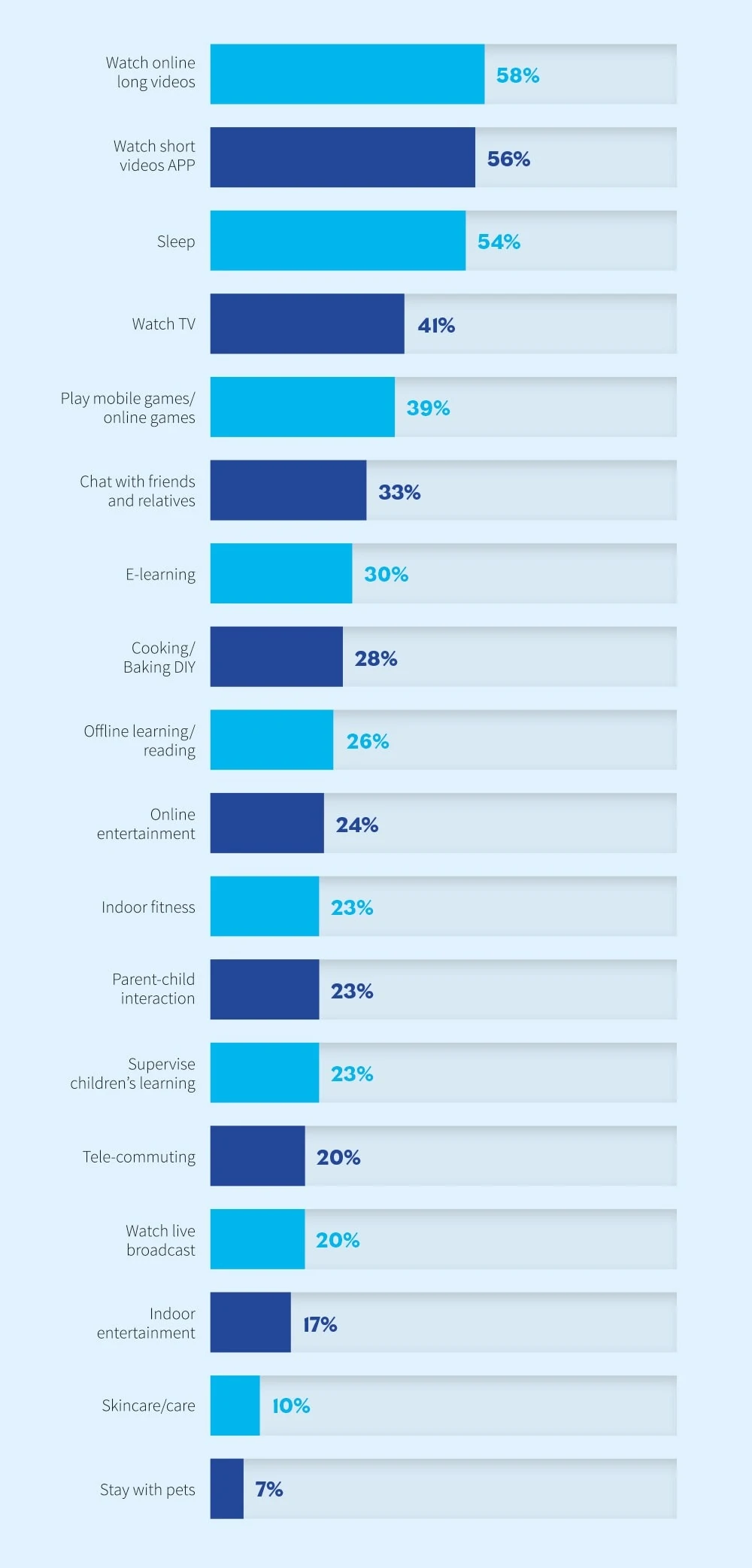It’s a family affair
The consequences of families being confined to their apartments for such long and intense periods might well lead to a spike in Summer divorces and November babies, but more seriously it is likely to have a long-term impact on the average person’s awareness of their work-life balance. People have, for the most part, enjoyed spending more time with their loved ones, and are recognising the importance of a sensible balance between time at work and time at home. Combined with the simultaneous experience of being able to experiment with working from home, many workers might demand more free time or flexible working when the crisis is over.
A reduction in travel
Work (and leisure) trips over the last several months have been all but entirely shut down. Face-to-face meetings, previously so important in China, have been replaced by video-conferencing and conference calls. Work still gets done, relationships are still maintained, and many companies are questioning whether they really need to jump on a plane to meet with a client. Time, cost and the environmental consequences of frequent travel are going to be questioned when technological solutions have proven equally successful. Likewise, many leisure travellers who have had their trips cancelled may well be thinking more about who they spend time with rather than where they go. Expect the reliance on organised package tours (and cruises) to continue to drop as the number of independent trips increase.
Improving clarity
The insurance industry is still under-developed in China as few individuals have personal, travel, health or home and contents insurance. The huge cost to businesses and individuals that the virus has caused will lead to many thinking about getting better insurance, which will bring insurance premiums down, allowing more people to get suitable insurance policies. Likewise, contracts that are sometimes written with intentional ambiguity or to be open to interpretation, will likely be written with much more clarity as companies end up battling litigation and legal battles for months to come from employers, suppliers and other providers who have been left out of pocket by the crisis.
Joined up thinking
China’s Social Credit System aims to connect the dots between private enterprise and regional government bodies to give individuals and companies a fully rounded economic and social credit rating. The virus has highlighted how disjointed the many government departments are across China’s different regions. Tax offices, labour departments and health and safety bodies vary enormously from province to province, making getting businesses back up and running a slow and complex ordeal for businesses with offices or factories spanning multiple provinces. Lessons learned from the virus epidemic with regards to information sharing are likely to speed up the Social Credit System’s roll out and its efficiencies.

How people in China report having spent their time during the pandemic so far
Entertainment beyond WeChat
During SARS, Beijing restaurateurs realised patrons were avoiding crowded indoor venues, and the Houhai Lake bar area emerged as a consequence. Al fresco and roof-top dining beside an attractive landmark emerged and created what is one of Beijing’s main tourist attractions today. Technological advancements have meant people no longer need to physically meet to catch up on local gossip, and video-sharing and gaming apps will be the biggest benefactors. No longer will they be the purview of the youth: expect older generations to get to grips with a wider range of apps and developers increasingly targeting an ageing population.


